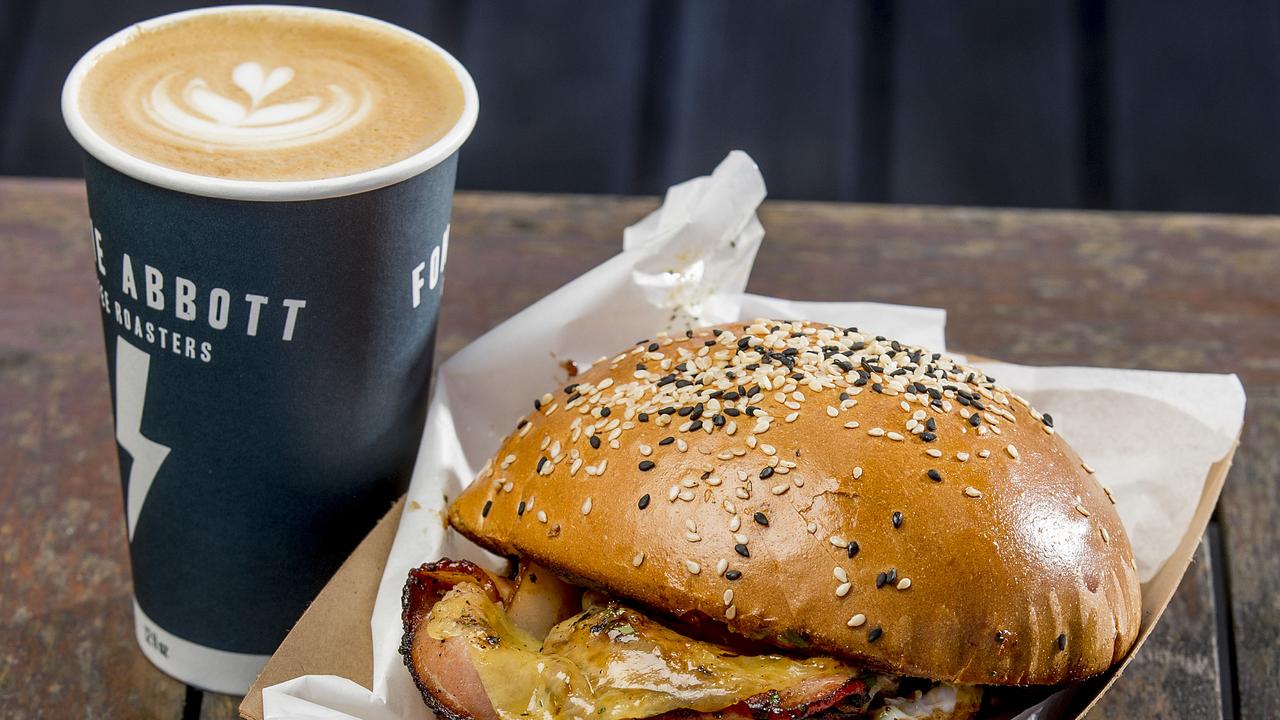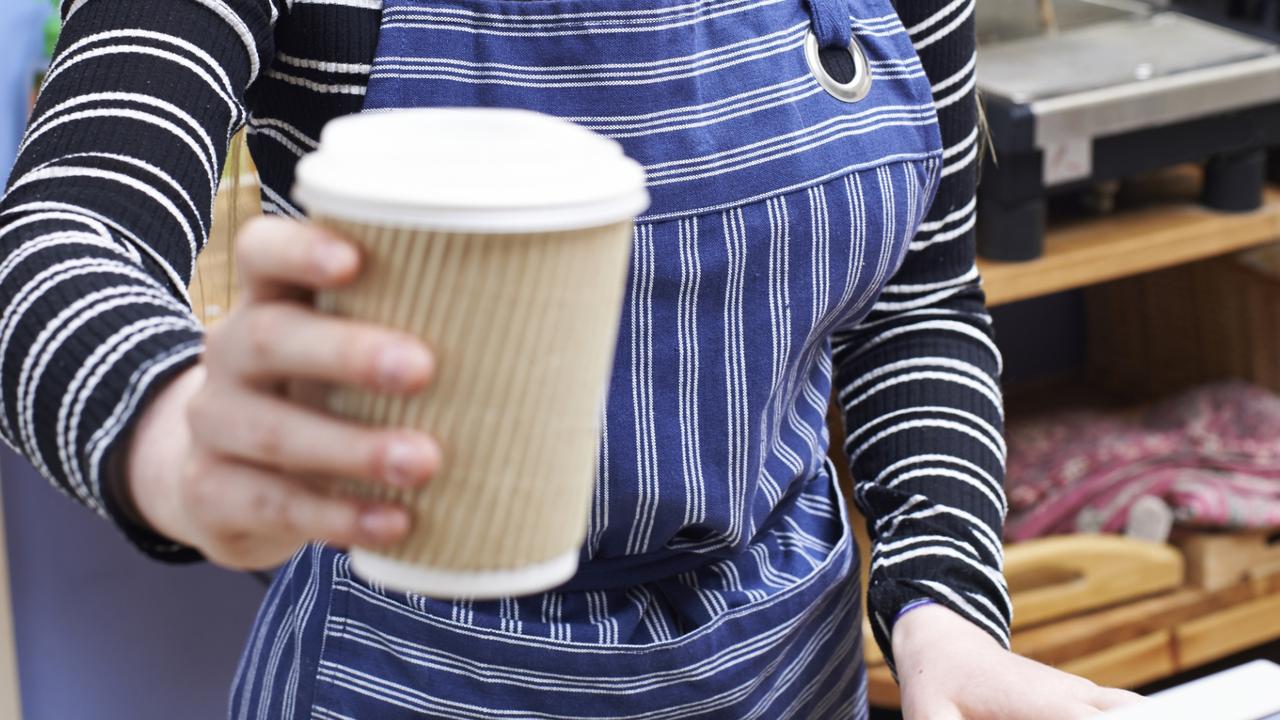Melbourne company fights single-use problem with edible coffee cups
Everyone knows disposable coffee cups are bad, but when you forget your reusable cup you don’t really have an option – that’s until now.
As reusable coffee cups took a back seat during the Covid pandemic due to contamination risks, the development of an even more sustainable beverage vessel was brewing.
The invention of edible coffee cups, while not an entirely new concept, has been refined by Melbourne company Good Edi, which began supplying boutique cafes about a year ago.
One of the company’s 50 clients is family owned Adelaide business The Coffee Bean Shop, which launched the eight ounce (237ml) edible cups at its Central Market and roasting facility in Welland this week.
The cups, which carry a similar volume to the outlet’s “regular” coffee size, have been wildly popular in the few days they have been available, owner Frank Mitolo told news.com.au.
“People are very conscious of the green movement. The response has been phenomenal,” Mr Mitolo said.

He said like his business, his customers were becoming increasingly mindful of the impact their consuming was having on the environment.
“The response has been enormous, really positive. The demand for it is certainly there,” Mr Mitolo said.
“These are completely biodegradable. If you don’t eat it, you can throw it away and it will break down.”
He suspected that as more momentum built among retailers and consumers, the $1.50 price per cup would likely come down.
Customers were currently buying the edible cups, which could be served with a chocolate or Biscoff coating, were more buying them out of novelty than necessity, he said.
In coming years he predicted there would be movement towards edible cups becoming the “norm”, particularly if the price dropped to below a dollar.
Mr Mitolo also looked forward to the development of a lid, with the edible vessels not suitable for people planning to drink a coffee while driving.
While reusable cups presented less of a threat to the planet than typical plastic-lined cups, they still placed responsibility on cafe workers to make sure they were clean.
Consumers were also prone to forgetting to bring their own cups, leaving disposable cups – some marketed as biodegradable or recyclable – as the natural default.
Melbourne-based manufacturer Good Edi, foundered by Catherine Hutchins and Aniyo Rahebi, has shipped off more than 80,000 cups since launching in June last year.
The response from retailers across the country had been beyond what the duo could have ever imagined, Ms Rahebi told news.com.au.

“We thought it was going to be well received but not to the extent that we always have a backlog of orders and that our wait time can be quite lengthy,” Ms Rahebi said.
The edible cups are from oats, grain, flour, bran, water, coconut oil, salt and sugar, with the small size containing 100 calories and the medium size 130.
“They are very nutritious, full of fibre and vitamin B,” Ms Rahebi said, adding the cups tasted a bit like a less sweet waffle cone.
In the development phase, Ms Rahebi and Ms Hutchins wanted to ensure the cup did not take away from the flavour of the coffee it would contain.
The cups maintain their structural integrity for up to eight hours after being filled with liquid.
“We wanted to create a solution that is truly sustainable and also super convenient for people, and the only waste free option we could think of was something you could eat,” Ms Rahebi said.






